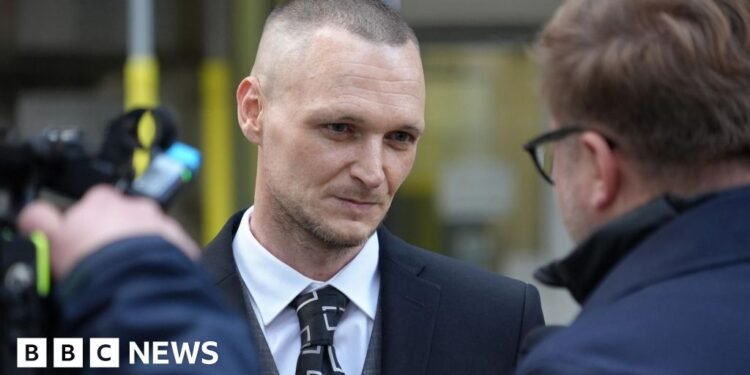Bitcoin Supporter Left Disheartened Following Unfavorable Court Verdict
In a disappointing twist of events, Robert Howells, an early Bitcoin supporter, expressed deep disappointment after a recent court ruling that shattered his hopes of recovering a hard drive containing a sizable amount of cryptocurrency, estimated at nearly £1 billion. The swift verdict, which didn’t allow Howells an opportunity to present his case, has sparked renewed conversations about digital asset access and the hurdles individuals face when navigating legal systems.
“I’m very dismayed,” expressed Mr. Howells, sharing his frustration at not being able to fully explain his situation in a proper trial. “There was so much more that I could have clarified, and that’s what I had anticipated.” He highlighted his efforts over the past 12 years to engage with Newport City Council on the matter, only to feel dismissed as if it were “a significant setback.” Howells stressed that this issue isn’t about greed; he was open to sharing a portion of the recovered funds with the council if granted access to the site.
Mr. Howells has been involved with Bitcoin since 2009 when he mined the cryptocurrency at a low cost. Regrettably, he lost track of the hard drive containing his digital wealth, now buried under 1.4 million tonnes of refuse at a landfill site. With Bitcoin’s value surging—rising over 80% in 2024—he enlisted a team of specialists to locate and retrieve the hard drive. He made multiple appeals to the council for permission to excavate the area, even proposing to donate 10% of the retrieved Bitcoin to the local community.
The council’s legal counsel, James Goudie KC, argued that existing property regulations classified the hard drive as council property upon disposal in the landfill. Besides, he asserted that environmental permits in place would hinder any excavation efforts, subsequently portraying Howell’s offer to share the Bitcoin returns as an attempt to take advantage of the situation. A judge later concurred, stating that the claim had insufficient chances of success if taken to trial, with no other compelling reasons justifying a trial.
At the crux of this matter lies the confluence of digital currency ownership and traditional property laws, illuminating a gap that numerous cryptocurrency holders may come across. Mr. Howells has pinpointed the hard drive’s potential location within a 100,000-tonne portion of the landfill but faces significant legal and logistical hurdles in retrieving it.
To sum up, the ruling not only denies Mr. Howells the chance to pursue justice but also underscores broader implications about the treatment of digital assets within legal frameworks. As the landscape of cryptocurrency continues to develop, this situation emphasizes the crucial conversations required concerning rights and ownership, especially in an era where digital currencies possess unprecedented financial worth.








